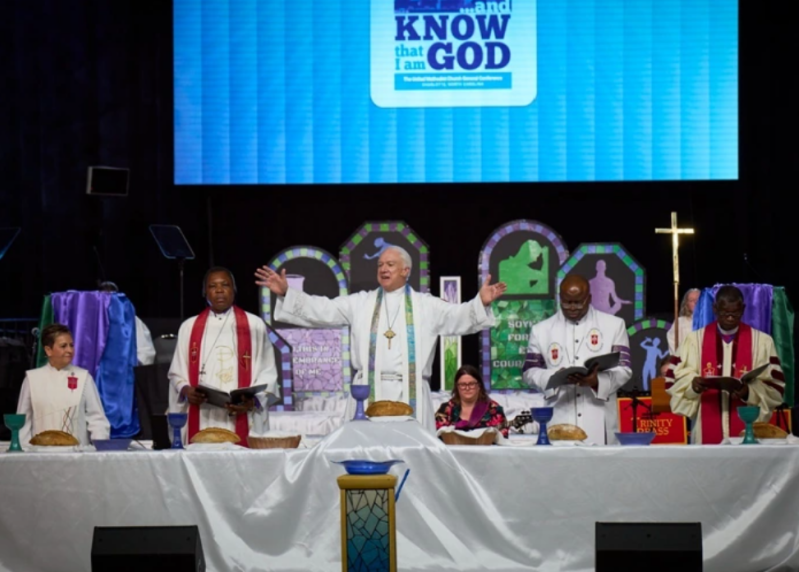
The United Methodist Church will allow regions of the global body to maintain biblical standards on sexual ethics, following the denomination's vote last year to remove such rules.
Amendment I, which allows for a denominational structure known as regionalization, had passed with a tally of 34,148 yes votes to 3,124 no votes, well above the needed two-thirds majority.
The amendment allows regional conferences of the denomination to make their own edits to certain parts of the UMC's Book of Discipline that apply to their region of the world.
The regional conferences make up different parts of the global denomination and are themselves comprised of the comparatively more locally-based annual conferences.
Three other UMC constitutional amendments were also passed with overwhelming majorities, according to an announcement from the UMC Council of Bishops on Wednesday.
These included: Amendment II, which added the words “gender” and “ability” to the list of categories in the UMC constitution that cannot be used to exclude people from membership; Amendment III, which explicitly recognizes the UMC’s role in combating “racism, racial inequity, colonialism, white privilege, and white supremacy;” and Amendment IV, which amends Section VI, Article IV of the UMC constitution by establishing “the educational requirements for clergy members of annual or provisional conferences who are eligible to vote for clergy delegates to the General Conference.”
“The ratification and certification of these constitutional amendments mark a defining moment in the continuing renewal and unity of The United Methodist Church,” said UMC Council of Bishops President Tracy Malone, as quoted in the announcement.
“These amendments reflect the church’s rich diversity and deep commitment to live more fully into our shared mission to make disciples of Jesus Christ for the transformation of the world and strengthens our world-wide connection to serve faithfully and inclusively in every context.”
For decades, the UMC experienced divisive internal debate over whether to remove language from its Book of Discipline that prohibited the blessing of same-sex unions, the ordination of noncelibate homosexuals, and the funding of LGBT advocacy groups.
Efforts to remove these rules were presented at past UMC General Conferences, only to be defeated in large part because of delegates from Africa, Asia and Eastern Europe.
Despite this, theological liberals within the denomination often either refused to follow or enforce the rules, prompting large numbers of theological conservatives to leave the UMC.
At last year’s General Conference, after over 7,000 mostly conservative churches had disaffiliated from the UMC, delegates finally passed legislation removing the Book of Discipline language.
Additionally, at the 2024 General Conference, delegates voted 586-164 to advance a petition for regionalization, sending the amendment to the annual conferences for possible ratification.
The proposal was not without its critics, among them Rob Renfroe, publisher of Good News Magazine, who participated in the General Conference before leaving the UMC.
“It is presented as a way to empower the church in each region of the world to do ministry in their particular context by adapting the Book of Discipline to their cultural settings. The real motive is to allow the church in the US to change the definition of marriage and to ordain practicing gay persons,” Renfroe said in a statement to The Christian Post last year.
“In the future, if Africa stays in the UMC, delegates from outside the US will far outnumber delegates from the West very soon. So, to keep Africa from determining the sexual ethics of the entire UMC, this legislation will marginalize the Africans and other traditionalists from around the world so that they have no say in defining marriage, sexual morality, etc., for the entire church.”
Originally published by The Christian Post






